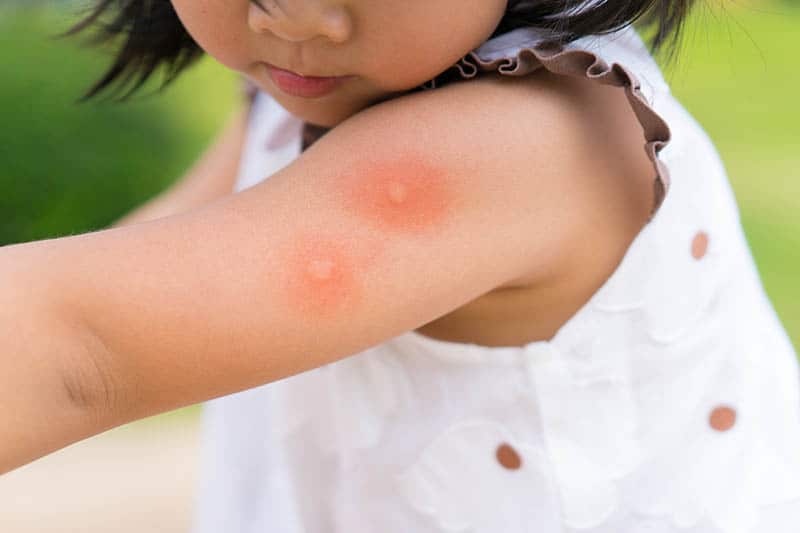We all love summer.
It’s a grand time where most of us cash in our vacation days so we can plan trips with our entire family for some fun time, whether it’s a simple picnic, a beach day, or a trip through the woods.
But summer isn’t all fun and games – no no.
Summer brings the most annoying and potentially dangerous menace along with it, especially in more humid areas – mosquitoes.
Every person, no matter how old, dreads the darn things when they hear their signature buzz and you go through so much to try and kill them, but there’s always one more.
The buzzing isn’t even the worst part, it’s the mosquito bites that are the most dreadful offenders.
Those itchy red bumps that appear all over your body is enough to ruin anyone’s day.
Then the itchiness isn’t the only problem.
It’s even worse if they carry over something extra in those nasty needle noses of theirs, which might lead to a severe allergic reaction or, God forbid, some horrid disease.
But then you remember that it’s not just you who’s at risk.
Your little ones are as well and they’re a lot more sensitive than you.
So what can you do to prevent not just mosquito bites on babies, but most other forms of insect bites as well, and keep yourself and your children safe from any of the nasty effects?
How To Avoid Mosquito Bites On Babies In The First Place?
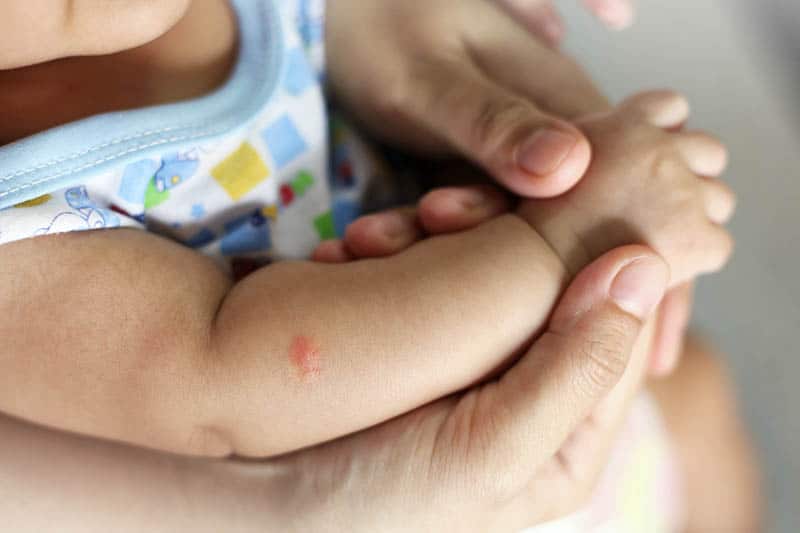
Do keep in mind that these steps will only reduce the risks, but will not outright stop them.
Still, better to prevent mosquito attacks than to have to deal with the aftermath.
Insect repellent
- MADE WITH OIL OF LEMON EUCALYPTUS: This DEET-free insect repellent provides you with protection during adventures in the backyard and on the go.
- REPELS MOSQUITOES FOR UP TO 6 HOURS: This repellent keeps you and your family protected for hours, so the fun doesnt have to end.
- REFRESHING SCENT: This DEET-free personal repellent leaves you with a cool, refreshing scent so you dont have to put up with the usual bug spray smell.
Prices pulled from the Amazon Product Advertising API on:
Product prices and availability are accurate as of the date/time indicated and are subject to change. Any price and availability information displayed on [relevant Amazon Site(s), as applicable] at the time of purchase will apply to the purchase of this product.
First and foremost, get some insect repellent.
But, don’t go about spraying it all over.
Babies that are 8-10 weeks old or younger should not be exposed to it, as bug repellents aren’t exactly made of the safest substances.
I’m not saying they’re deadly, but they can do more harm than good on a child that young.
This is because they are still technically insecticides – insecticides that contain DEET or picaridin, or both on occasion.
DEET works to simply repel insects, while picaridin works to confuse them outright and not see your child as a delectable lunch menu item.
When looking for a mosquito repellent to use on your child, make sure that the concentration of DEET is below 30%, or 10% in picaridin’s case, to minimize the risk of any potential skin irritations while preserving the effectiveness of the repellant.
And said repellent isn’t just exclusive to driving mosquitoes away – it prevents all sorts of other bug bites as well, from sneaky spider bites to the troublesome tick bites, all mostly active in the summer.
Protective clothing
- Best Cotton Materials, very good Elasticity and Breathable
- Fashion Deer Print design, this will make your little one very cute
- Occasion: Casual, playwear, baby home coming, baby Shower Gift, or Photograph
- Elastic waistband pants, so soft and your baby will feel very comfortable wearing it
- Package included: 1PC Baby Boys Hoodie Tops + 1PC Pants
Prices pulled from the Amazon Product Advertising API on:
Product prices and availability are accurate as of the date/time indicated and are subject to change. Any price and availability information displayed on [relevant Amazon Site(s), as applicable] at the time of purchase will apply to the purchase of this product.
The next piece of advice, while it might seem insane in the summer, is to stick with long sleeves on shirts and long pants instead of the standard shorts and t-shirts, or just a diaper.
While it may look cool on the surface and “perfect” for that family photo, letting your child walk so exposed outdoors just invites bugs to nibble on your child’s delicate skin.
That’s not something we want to happen now, is it?
And while it may seem ludicrous to dress your child like that in the hot summer days, there are lightweight fabric options for baby clothes that will serve the purpose of protecting your child while keeping them cool, like linen, chiffon, or ramie.
Another note is to try and keep the colors darker on clothing, since bright and vibrant ones tend to attract mosquitoes like most other bugs.
Speaking of clothing, you can add an extra layer of protection by spraying permethrin on the outside of them and on your mosquito nets.
This will outright kill any nasty bloodsuckers that come your child’s way.
But why not spray it directly on the baby’s skin?
Because permethrin can still cause skin irritation in adults, let alone kids, so make sure to avoid skin contact and only spray clothing lightly if you decide on using it.
Mosquito nets
- Rectangular single-wide mosquito net provides fully enclosed protection against biting insects and mosquitoes when sleeping outdoors or indoors
- Fine white 180 mesh polyester netting with floor base completely covers a single wide sleeping bag or cot
- Six reinforced metal tie tabs at corners and sides; anchor four corners into ground, hang top two corners from tree or posts
- Durable mildew resistant polyester netting packs in easy enclosing carrying bag
- Size: 78 x 32 x 59 inches (LxWxH)
Prices pulled from the Amazon Product Advertising API on:
Product prices and availability are accurate as of the date/time indicated and are subject to change. Any price and availability information displayed on [relevant Amazon Site(s), as applicable] at the time of purchase will apply to the purchase of this product.
This leads us to the next tip which is to get some mosquito nets for your doors and windows.
Most commonly recognized as screen doors or windows, these will decrease the surface area that a mosquito gets when trying to get into the house, while also letting you air your homes out to lower the temperature and create a breeze.
This way you won’t need to resort to air conditioning all the time and will always have a hit of fresh air without worrying about these rascals endangering your home or causing problems with your kids.
You can even get a mosquito net that fits over your little one’s crib, or one to place over the stroller if you’re insistent on taking your baby outside for a bit and keeping them protected.
Clean environment
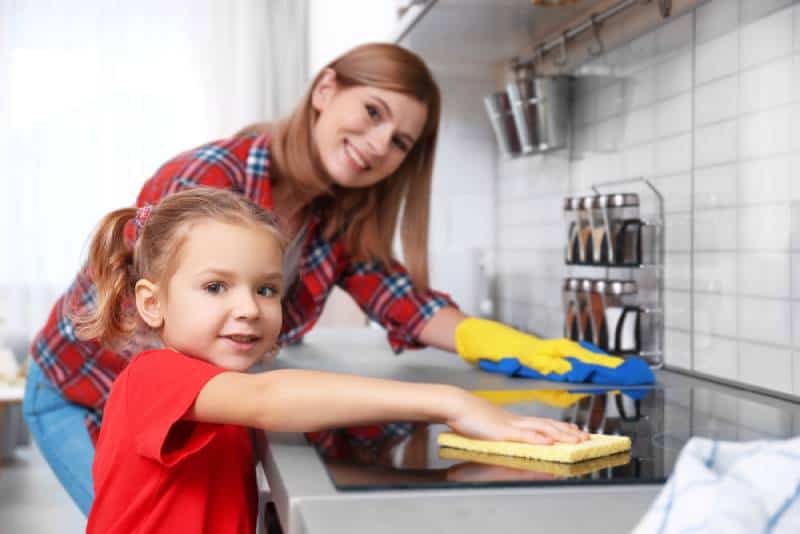
Why? Well, that’s because these pests adore overfilled garbage cans, exposed food (fruit in particular attracts them the most), and watery surfaces like leaks and such that create damp areas, which are havens for them.
Especially try to avoid having lingering pools of stagnant, standing water lingering about for too long.
Those are absolute breeding grounds for mosquitos and should be avoided at all costs above all.
The less place they have to “nest” in, the better it’s going to be for your baby’s health and the health of your entire family.
Know when to stay indoors
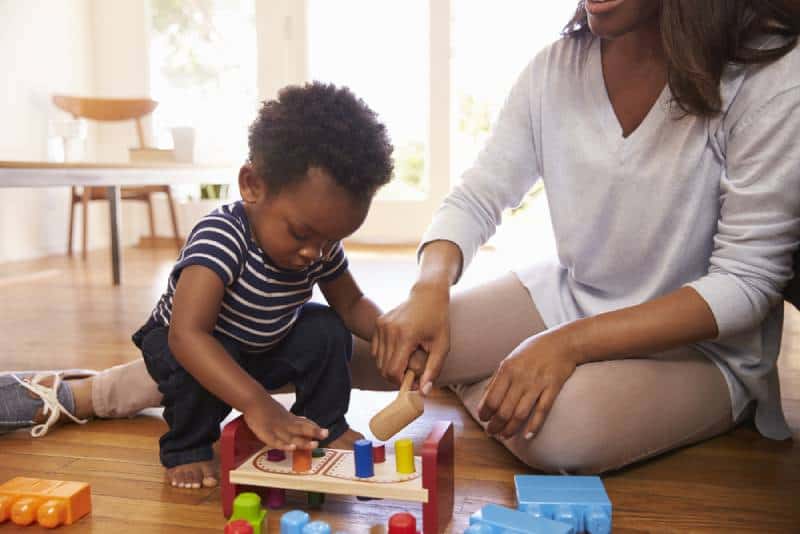
Mosquitos tend to be the most active from evening to dawn, so close any doors and windows that may let them in – those lights shining from your window will inevitably attract them and then you have the problem back.
If, however, you are using mosquito nets as I had suggested earlier, you should be fine, but you should still practice closing down during the night.
It doesn’t last long in the summer anyway!
What to do in the case of an eventual bite?
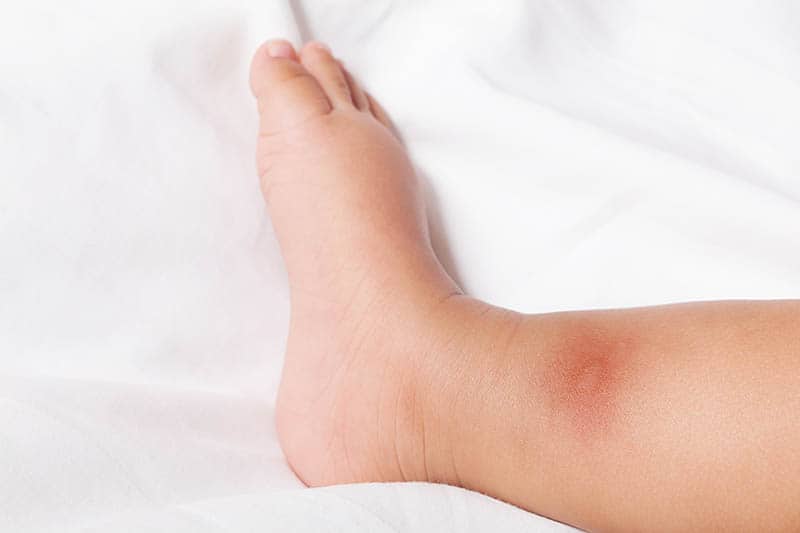
A few will eventually get through or even catch you outside during a walk.
It can’t be helped unless you are keeping your child in some sort of hypoallergenic bubble – in which case I’d be very displeased (and the baby will be too) – but I trust that all of you are trying to be the best moms that you can be!
But what to do if mosquito bites on babies start appearing? Is it all that dangerous?
Well, no. Not really. The dangerous diseases usually transmitted by mosquitoes like malaria and the like luckily aren’t really all too present in the States.
West Nile virus is the biggest outlier of the lot and the highest potential risk out of all the mosquito-transmitted diseases.
But even it only has symptoms that surface in 1 out of 150 people infected, according to the CDC, and it doesn’t show any increased risk in babies.
The rest is mostly dealing with the itchy red bumps, the bite sites, and the like, as well as any potential allergic reactions your baby might have to either the bite or any of the mosquito repellents that you’re utilizing (which you should test first!)
If your child does experience severe reactions to a bite, however, or is showing symptoms of the West Nile virus, make sure to contact your pediatrician and explain the symptoms to them.
The symptoms can be but aren’t limited to: fever, bouts of vomiting, heavy nausea, or they may even react slower to lights.
The worst symptoms are when your child starts wheezing and overall has difficulty breathing.
That may be an early warning sign of anaphylaxis, which can be potentially life threatening.
Follow the advice of your family pediatrician carefully and trust them to know best. They are the trained professionals here, after all.
But most times, while mosquito bites on babies will not be that serious, you should still be prepared for those situations, preferably with some home remedies first, though anything you apply you should be tested for allergic reactions first.
Ice
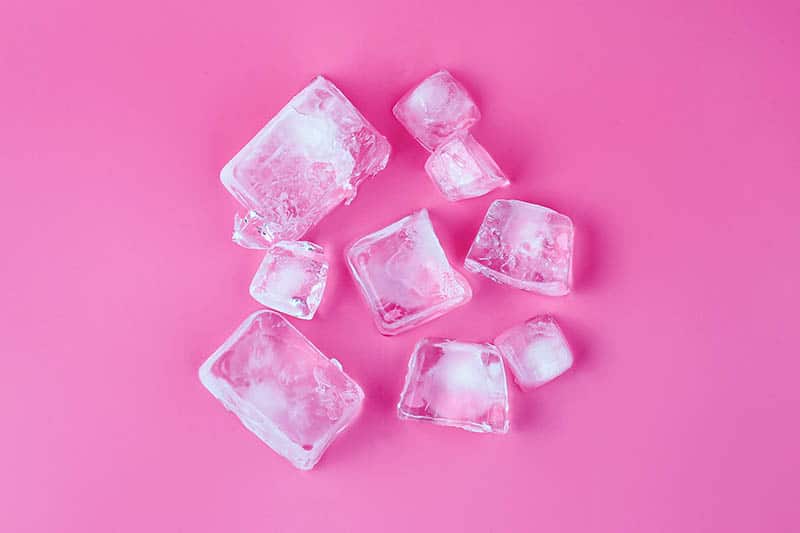
When you see a fresh bump on your child’s skin, get some ice cubes and apply them on the affected area.
If you got it early enough, it should prevent the formation of any nasty itchy feeling and help reduce swelling to make it less interesting for your child to try to pick away at.
Baking soda

Dissolve it in some water – a small spoonful ought to do just so it’s present in the water – dampen a piece of cloth with it, and gently press down on the area while keeping the baby distracted with something else.
The problem should lessen by the time you’re done. 10 minutes ought to do it, but it differs on the size of the bite.
Over-the-counter medication
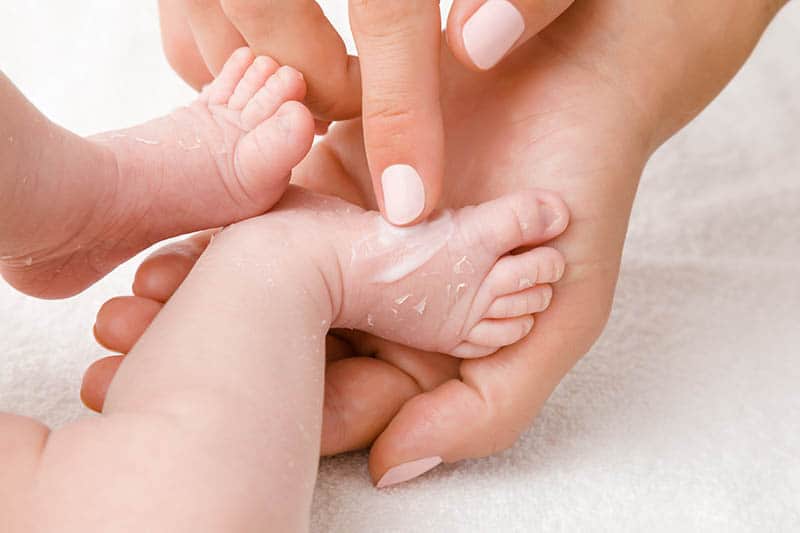
These will assist in reducing the need for your child to scratch away at the affected area, preventing them from potentially making the situation worse or getting it infected.
Less-recommended home remedies
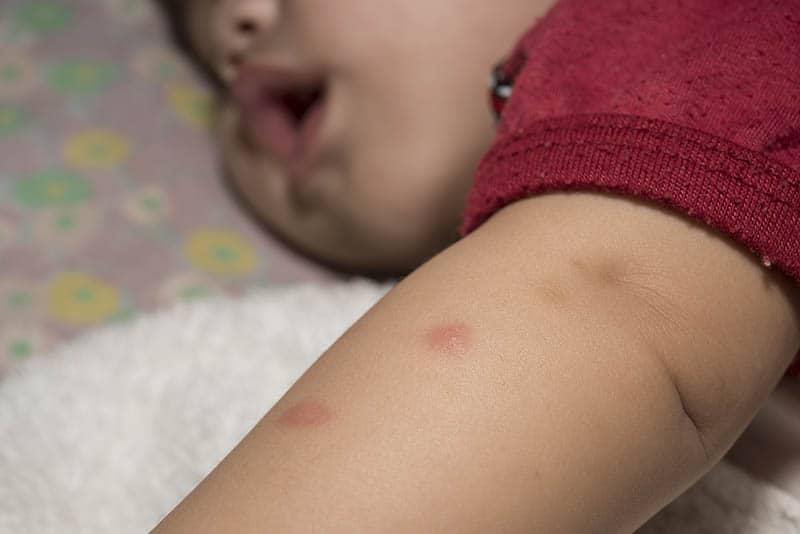
Foods like lemon or salt, while effective at helping reduce the itchiness, are not the best when applied to an open area and may just end up causing the baby unneeded discomfort (putting salt on an open wound and all that).
Then you have items like garlic or honey.
Garlic helps resolve the itchy bit and helps reduce swelling, oddly enough, but you get left with the garlic smell, something that your little one may not appreciate.
While the smell does help stave off those darn bloodsuckers too, it may not be the highest priority remedy of the bunch.
And honey, while retaining the same properties sans the smell, is rather sticky and will leave a mess after all, but if you can bother with the cleanup, it should do well in a pinch.
That should about cover it from the products’ side, but apart from that, you should always explain to your child that they should practice discipline in letting the bump be, or if they’re old enough, to apply some of these remedies themselves.
Conclusion
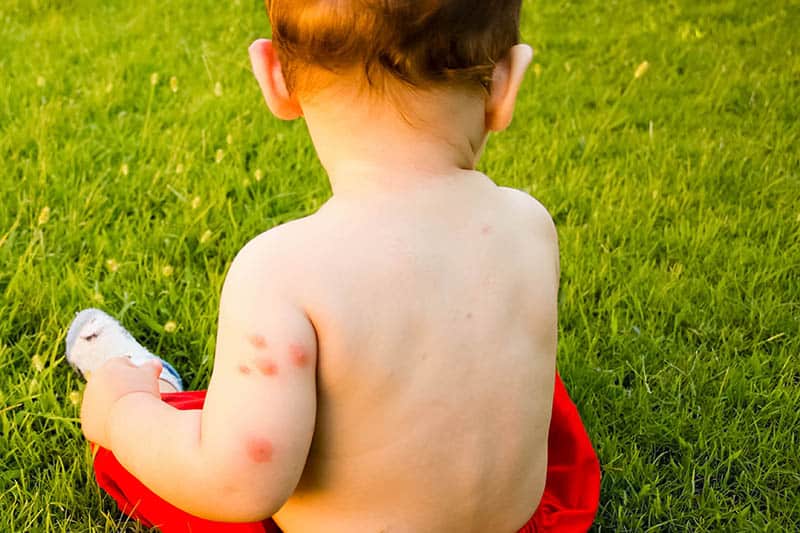
It still pays to be safe and keep holding on to these preventive measures, but overdoing it may not be something that your child will like in the long run.
It might just turn you into an overprotective mom, and no child likes being smothered.
Though, if your child has a known allergic reaction to mosquito bites or, God forbid, has some innate problems with breathing or some other part of their body, you should be on the lookout and always alert.
The usual mom stuff – keep them near and don’t leave them unsupervised.
You are their best protector when they’re that young and they’ll thank you for it.
As always, make sure to figure out what works for your child and what doesn’t.
Find what is right for them and stick to it. Their comfort and happiness is most important in times like these and you should never neglect them.
That’s about it this time around.
I hope I’ve managed to help you and that your coming summer and all the summers after it become all the more pleasant for your child and you.
Like this article? Please share or pin it for later. You can also stay in the loop and follow me on Facebook, Instagram or Pinterest.
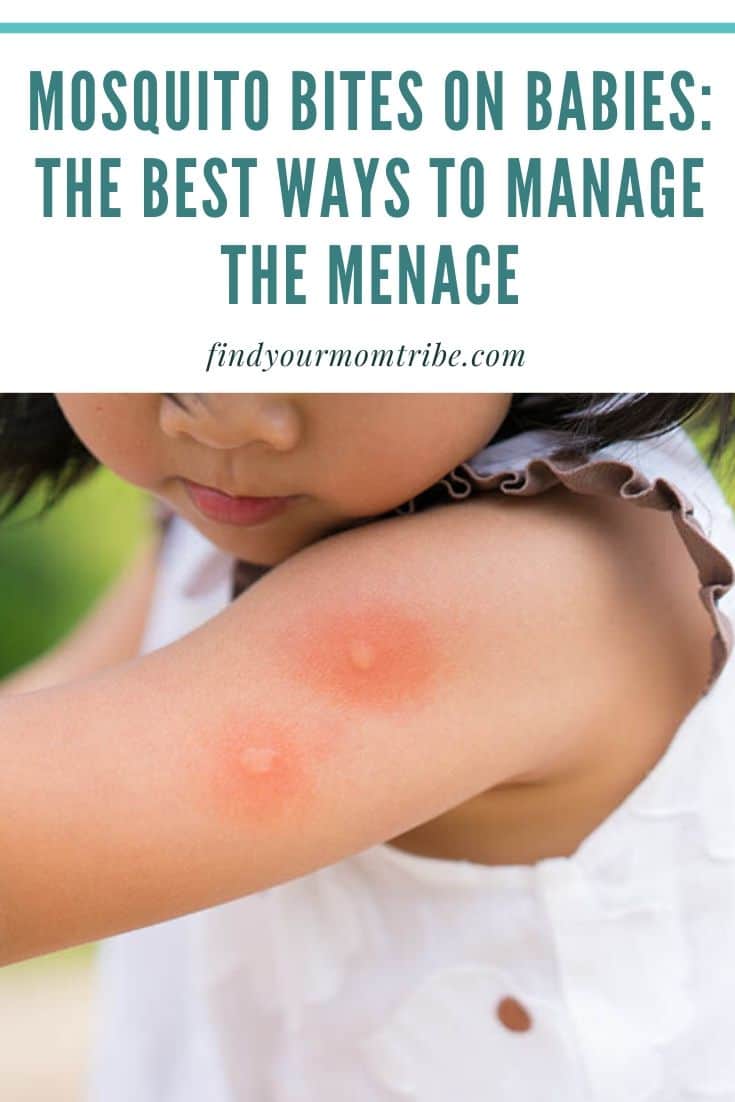
We love honesty! Find Your Mom Tribe is an Amazon Associate and we earn from qualifying purchases through affiliate links at no extra cost to you. Please see our full Amazon Affiliate disclosure for more information.

